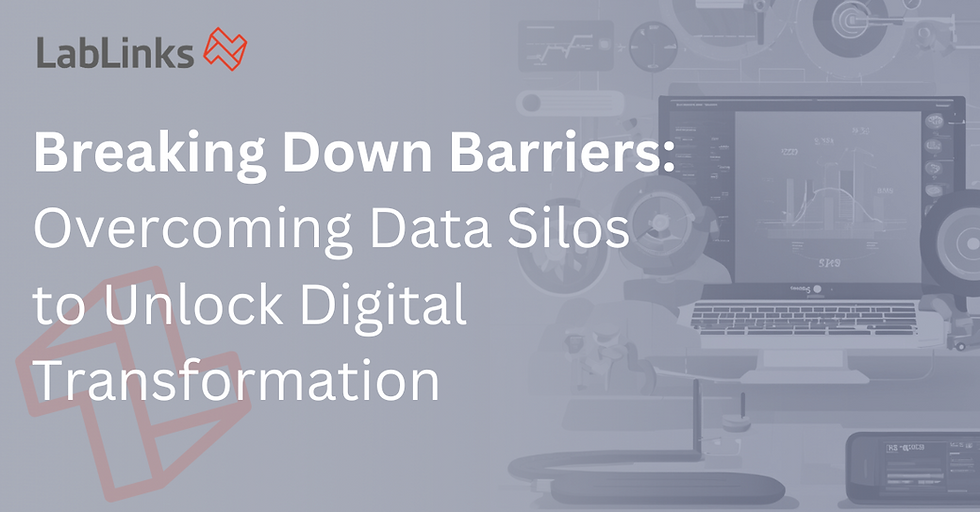5 Advantages of Digital Automation in the Lab
- Caitlin Daniels

- Jun 4, 2024
- 2 min read
Updated: Jul 1, 2024
Digital innovation in the labs is revolutionising the future of scientific research and accelerating cutting-edge breakthroughs.
It is reported that digitalised labs have seen a significant improvement in data access, less manual effort, and enhanced collaboration.¹
Artificial intelligence in the pharma industry is freeing up the hands and minds of scientists so they can focus on their experiments and research.
So, what are the top 5 advantages of embracing digital innovation in the laboratory?

1. Increased Efficiency
A major benefit of the digital lab is the rapid speed that AI processes and analyses data. By streamlining routine tasks such as manual data input, equipment maintenance logging, and experiment tracking, digital lab automation enables scientists to focus on their scientific advancements. This increases productivity and allows scientists to spend their time on the more complex and creative aspects of their research.
2. Data Management and Analysis
Artificial intelligence and digital tools have the power to store, organise, and retrieve data from different instruments and software, collating your data into one user-friendly dashboard. Not only does this save time by creating a centralised platform for sharing and storing findings, but it also enhances data integrity. Information is readily accessible, accurate, and secure, enabling you to manage and analyse data faster and more efficiently.
Discover more about the LabLinks ELN System Integration and Augmentation software.
3. Real-Time Collaboration
Digital tools allow for real-time data sharing across different laboratories or even different countries, enabling the seamless sharing of knowledge and insights. These solutions facilitate a more collaborative environment and accelerates the sharing of knowledge, promoting innovation.
4. Reliable Quality and Precision
Automated digital workflows in the lab enhance data integrity as they can eliminate the risk of human error. AI can help ensure consistent, reliable results in the laboratory and provide higher accuracy in data collection, analysis and reporting. This is critical for advancing scientific research and enabling higher reliability in your findings. As well as creating trustworthy results, AI can also flag when a retest is needed, or when equipment requires maintenance.
5. Environmental and Economical Savings
Digital tools save time and reduce waste thanks to the more intelligent use of resources. Automated processes can decrease the amount of sample volumes required and minimise the repetition of studies. This produces more sustainable experiments and leads to cost, time and staffing savings.
Let’s enhance the potential of your lab.
References
¹ Accenture Study, Driving Digitalization at Scale in the Lab, 2022



Comments